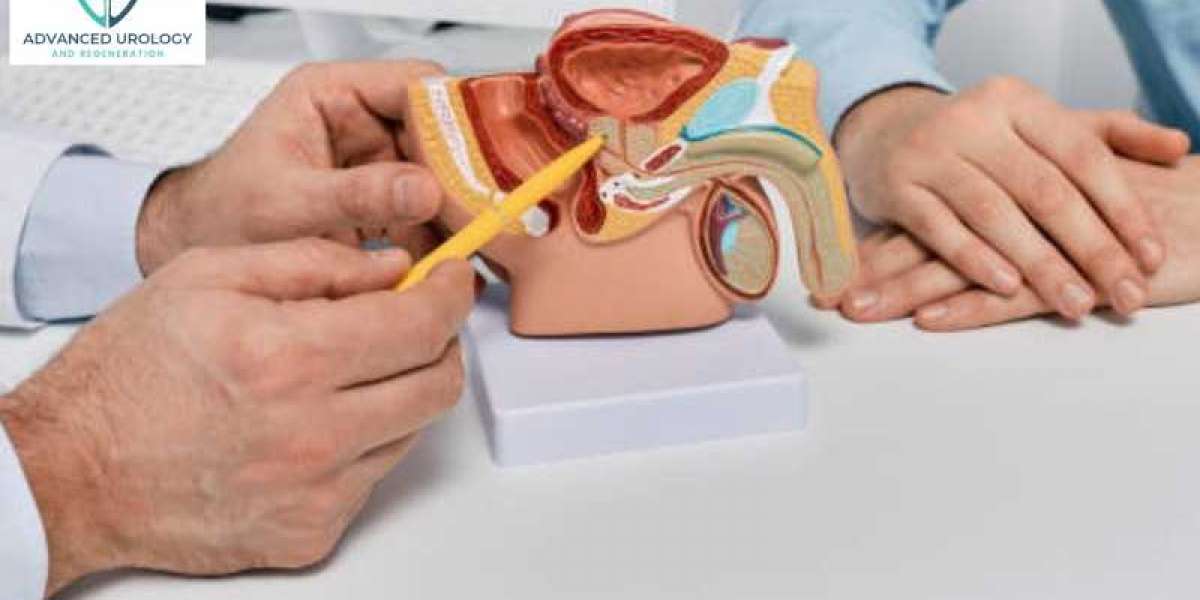Are you feeling fatigued, experiencing a decreased sex drive, or noticing unexplained weight gain? You may be one of the many men struggling with hypogonadism, a condition that leads to low testosterone levels. In this blog post, we will delve into the symptoms and causes of hypogonadism, explore traditional treatment options and natural remedies to boost testosterone levels, and discuss the role of diet and exercise in managing this condition. Let's uncover how you can take control of your health and vitality!
Understanding Hypogonadism and Low Testosterone
Hypogonadism is a condition in which the body produces insufficient testosterone, the primary male sex hormone. Testosterone plays a crucial role in various bodily functions, including muscle mass maintenance, bone density, and sperm production.
There are two types of hypogonadism: primary and secondary. Primary hypogonadism occurs when there is a problem with the testicles themselves, while secondary hypogonadism results from an issue with the pituitary gland or hypothalamus.
Low testosterone levels can lead to a range of symptoms such as fatigue, decreased libido, erectile dysfunction, and mood changes. It's essential to recognize these signs and seek medical advice for proper diagnosis and treatment.
Understanding hypogonadism is key to addressing its impact on your health and quality of life. Stay informed about this condition to make informed decisions about your well-being.
Symptoms and Causes of Hypogonadism
Hypogonadism, a condition characterized by low testosterone levels, can manifest in various symptoms. Men may experience decreased libido, erectile dysfunction, fatigue, and infertility. Other common signs include reduced muscle mass, hair loss, and mood changes like irritability or depression.
The causes of hypogonadism can be classified into two main categories: primary and secondary. Primary hypogonadism occurs when the testes are unable to produce sufficient testosterone due to factors such as genetic disorders, injury, or infection. Secondary hypogonadism is often linked to issues with the pituitary gland or hypothalamus in the brain that disrupt hormone production signals.
It's crucial for individuals experiencing symptoms of hypogonadism to consult with a healthcare professional for proper diagnosis and treatment tailored to their specific needs.
The Impact of Low Testosterone on Men's Health
Low testosterone levels can have a significant impact on men's health, affecting various aspects of their physical and emotional well-being. One of the most common consequences of low testosterone is a decrease in libido and sexual function. This can lead to issues such as erectile dysfunction and reduced sperm production, impacting both personal relationships and self-esteem.
In addition to sexual health, low testosterone levels can also contribute to fatigue, muscle loss, weight gain, and decreased bone density. Men may experience mood swings, irritability, depression, and difficulty concentrating due to hormonal imbalances. These symptoms not only affect daily life but can also increase the risk of developing conditions like osteoporosis and cardiovascular disease.
Furthermore, low testosterone has been linked to an increased likelihood of experiencing sleep disturbances and a higher prevalence of metabolic syndrome. It's essential for men to be aware of these potential health concerns associated with hypogonadism so that they can seek appropriate treatment from healthcare professionals specializing in urology or endocrinology.
Traditional Treatment Options for Hypogonadism
When it comes to traditional treatment options for hypogonadism, hormone replacement therapy (HRT) is often the go-to method. HRT involves supplementing testosterone levels in the body through injections, patches, gels, or pellets. This helps restore testosterone levels to normal and alleviate symptoms like fatigue and low libido.
Another common approach is using clomiphene citrate to stimulate natural testosterone production in the testes. This medication can be effective for some men with hypogonadism who wish to maintain fertility while boosting their testosterone levels.
In certain cases where the underlying cause of hypogonadism is a pituitary gland disorder, surgery or radiation therapy may be recommended to address the issue and improve hormone production.
It's essential for individuals with hypogonadism to work closely with a healthcare provider specializing in andrology treatment like Dr. Bivek Kumar in Kolkata to determine the most suitable traditional treatment plan tailored to their specific needs.
Natural Ways to Boost Testosterone Levels
Are you looking for natural ways to boost your testosterone levels? You're not alone. Many men seek alternatives to traditional treatments for hypogonadism. One effective method is regular exercise, particularly strength training and high-intensity interval training. These activities can help increase testosterone production in the body.
Another natural approach is maintaining a healthy diet rich in nutrients like zinc, vitamin D, and omega-3 fatty acids. Foods such as lean meats, nuts and seeds, fish, and leafy greens can support optimal hormone levels. Additionally, getting enough quality sleep each night plays a crucial role in testosterone regulation.
Reducing stress through relaxation techniques like meditation or yoga may also help improve hormonal balance. Avoiding excessive alcohol consumption and quitting smoking are essential steps towards enhancing overall health and promoting healthy testosterone levels naturally
The Role of Diet and Exercise in Managing Hypogonadism
When it comes to managing hypogonadism, the role of diet and exercise should not be overlooked. A healthy diet rich in nutrients like zinc, vitamin D, and protein can help support testosterone production in the body. Including foods like lean meats, nuts, seeds, leafy greens, and fatty fish can have a positive impact on hormone levels.
Regular exercise is also crucial for managing hypogonadism. Physical activity helps reduce excess body fat which can contribute to lower testosterone levels. Both resistance training and cardiovascular exercises are beneficial for boosting testosterone production. Aim for a mix of strength training and aerobic workouts throughout the week to see optimal results.
Incorporating lifestyle changes such as maintaining a balanced diet and staying active can go a long way in managing hypogonadism naturally. By making these adjustments, individuals may experience improvements in their overall health and well-being while supporting healthy testosterone levels.
Alternative Therapies for Hypogonadism
When it comes to alternative therapies for hypogonadism, there are several options that some men find beneficial in managing their condition. Acupuncture, for example, is believed to help stimulate the body's natural healing process and improve hormonal balance. Herbal supplements like ashwagandha and tribulus terrestris have also been used traditionally to support testosterone production.
Another alternative therapy gaining popularity is lifestyle modifications such as stress reduction techniques like yoga or meditation. Getting quality sleep and maintaining a healthy weight through regular exercise can also play a significant role in boosting testosterone levels naturally. Some men turn to chiropractic care or massage therapy to address any underlying issues that may be contributing to low testosterone.
It's important to note that while alternative therapies may complement traditional treatments for hypogonadism, it's crucial to consult with a healthcare provider before making any significant changes to your treatment plan. Each individual's needs are unique, so what works for one person may not work for another when it comes to managing hypogonadism effectively.
Conclusion
Hypogonadism or low testosterone can have significant impacts on men's health and overall well-being. It is essential to recognize the symptoms and causes of this condition in order to seek appropriate treatment. Traditional options such as hormone replacement therapy, natural remedies like diet and exercise modifications, as well as alternative therapies, can all play a role in managing hypogonadism.
If you are experiencing symptoms of low testosterone, it is crucial to consult with a qualified healthcare provider specializing in andrology treatment. Dr. Bivek Kumar is known for providing the best urology and andrology treatment in Kolkata. By seeking professional help and exploring various treatment options, individuals with hypogonadism can improve their quality of life and overall health outcomes. Remember that taking proactive steps towards addressing low testosterone levels can lead to better physical health, emotional well-being, and vitality in the long run.








